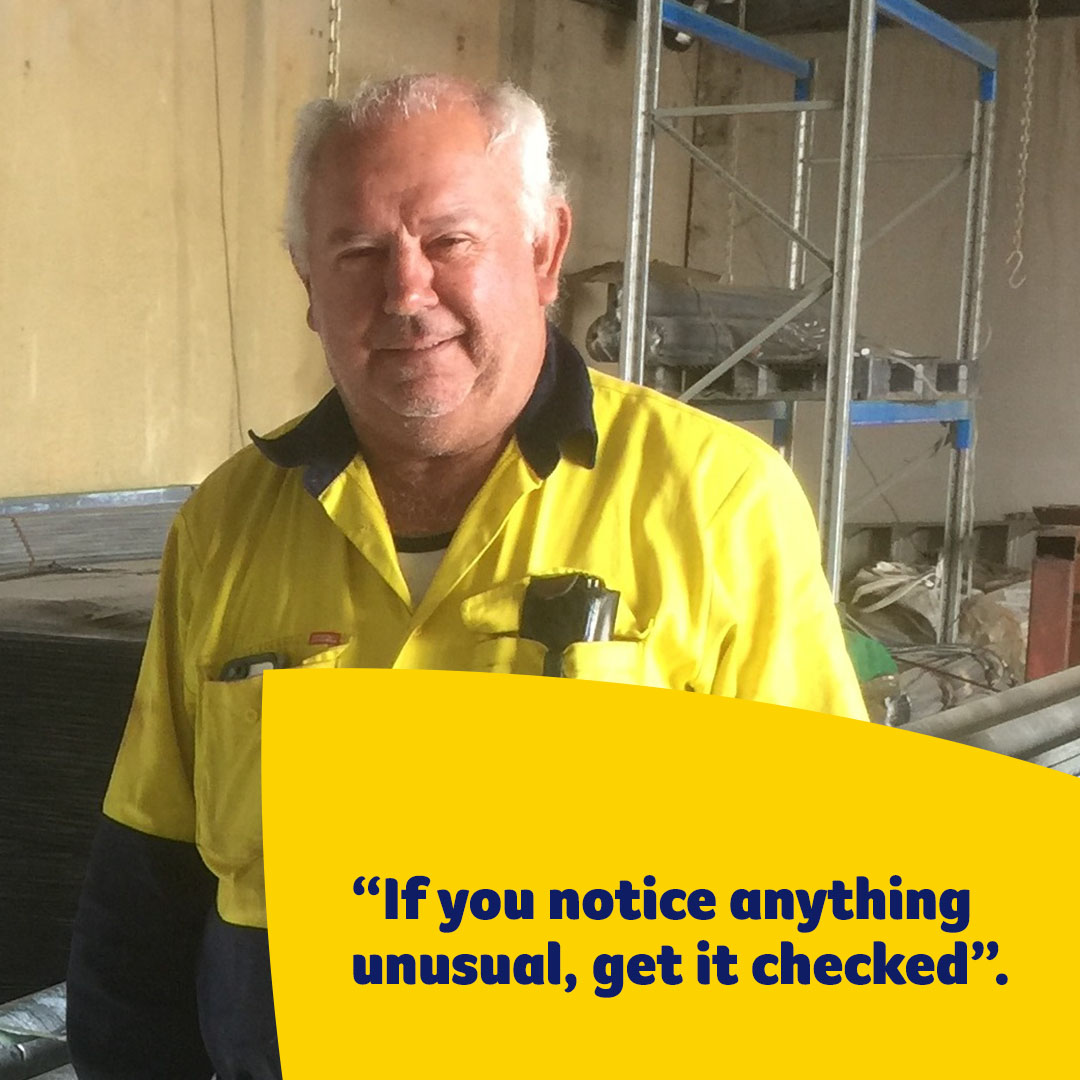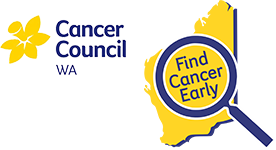Prostate cancer champion
None of this “I’ll be right” nonsense. If you have a symptom, get to a doctor.
Brian’s story
At age 65, steel fabrication business owner Brian noticed some changes to his peeing habits. He was feeling like he needed to pee immediately after peeing and knew something wasn’t right. Having lost a good friend to prostate cancer, Brian made it a priority to see his GP within a week.
Brian’s GP referred him to a urologist and a blood test indicated a high level of prostate specific antigen (PSA). Together with his symptoms, unfortunately this PSA result indicated prostate cancer. In August 2018, Brian underwent 8 weeks of radiation treatment which fortunately was available close to home in Bunbury.
Brian credits the support of his wife as being crucial to getting him through his cancer treatment.
Brian’s advice
‘If you notice anything unusual, be sure to get it checked’.
‘If you have a symptom, don’t mess around and be the tough Aussie guy’.
‘None of this ‘I’ll be right’ nonsense. If you have a symptom, get to a doctor’.
Prostate specific antigen (PSA) test
The PSA test measures the levels of PSA found in the blood. Normally, PSA stays within the prostate. Blood levels of PSA increase if the prostate is damaged.
The current PSA test is not a suitable population screen test. Unfortunately, we don’t have reliable medical proof that routine population testing does more benefit (increased prostate cancer survival) than harm (treating people who don’t need treatment and side effects of treatments).
Early detection of symptoms can significantly improve prostate cancer treatment. Men considering being tested for prostate cancer should do so with information on both the benefits and harms of testing and treatment. We encourage men to speak to their doctor, or phone the Cancer Council WA cancer nurses on 13 11 20, so that they can make an informed choice about PSA testing.
Men experiencing possible prostate cancer symptoms should tell their doctor, clinic nurse or Aboriginal health worker without delay.

